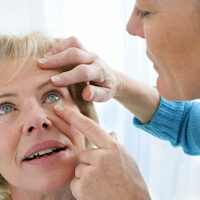
health
9 warning signs that indicate sleep deprivation
Quality sleep is one of the most important factors in maintaining one’s health. According to the Centers for Disease Control and Prevention (CDC), a sleep duration of around seven hours or more per night is recommended for most adults. When one fails to get this required snooze, it is called sleep deprivation. This can be a short-term issue affecting one over a few days or a chronic condition lasting weeks and months. Warning signs of sleep deprivation Sleep deprivation can occur due to a variety of reasons, such as work stress, new parenthood, lifestyle, sleep disorders, health conditions, or environmental factors. Even 24 hours of missed sleep could impact one’s motor functioning and response times. There are various other warning signs of sleep deprivation to be aware of. Acne breakouts Some studies have shown a close relationship between lack of sleep and increased acne breakouts. This occurs because sleep deprivation can enhance the body’s cortisol levels, which increases inflammation and production of sebum, causing breakouts. Puffy eyes During the deep sleep stages, the body regulates hormones and works on tissue and muscle repair. Without adequate sleep, this becomes an issue, causing redness and/or puffiness around the eyes, dark circles, and deep eye bags.
Read More 





